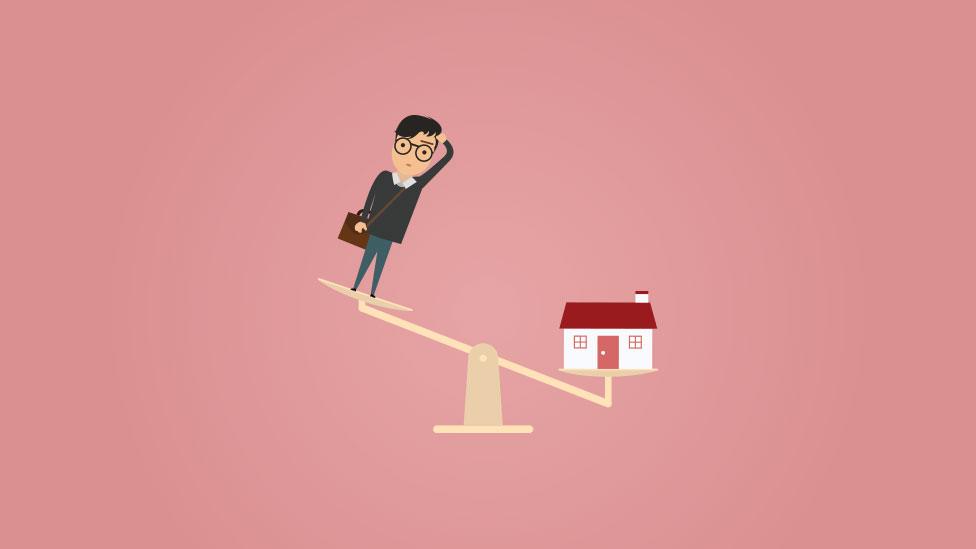Shoppers switch to credit card use
- Published
- comments

Shoppers are increasingly using their credit cards for day-to-day spending rather than one-off purchases, the banks' trade body has said.
The greater protection offered when buying bigger purchases and the temptation of loyalty points has led to their increased use, UK Finance said.
The body said credit card spending saw a sharp rise of 12.1% in October compared with the same month in 2017.
Debt charities have warned about the use of credit for everyday purchases.
They said that people risked financial difficulty if they built up spending on credit cards. If they were hit by a financial shock - such as long-term illness. - they could struggle to make repayments and face high interest charges.
Over the past 12 months, the outstanding level of borrowing on cards issued by the High Street banks grew by 5.7%, UK Finance said. Total spending on these bank-issued credit cards was £11.3bn in October.
Across the whole UK lending sector - not just banks - total borrowing on credit cards by consumers was more than £17bn during the same month.
There were nearly 290 million purchases made using a credit card in October, at an average value of £53, the data shows.
But Eric Leenders of UK Finance said that consumers were taking a "measured approach" to credit as it was rising broadly in line with spending in general.
"This reflects the growing preference of customers to use their credit cards as a means of payment rather than a borrowing mechanism, making the most of additional consumer protections and value-added benefits," he said.
This refers to the potential for consumers to make a claim for a refund to a credit card provider, rather than just a retailer or airline or similar, when there is a problem with a purchase of more than £100. This is known as section 75 protection in the Consumer Credit Act.
Many consumers also feel more comfortable using credit cards, rather than debit cards, when buying online, owing to scam fears.

Separate figures published on Monday by Lloyds Banking Group suggest that, while spending has risen, some people are struggling to put money aside as savings.
The bank's survey suggested that 60% of those who had not saved did not have the money to spare.
Some 28% felt they had to manage their outstanding debts before setting money aside in savings.
That was reflected in the UK Finance figures, which showed that personal deposits and savings grew by just 0.8% in October compared with a year earlier - the slowest growth for 11 years.
Rachel Springall, from financial information service Moneyfacts, said: "Consumers swept up in the frenzy of Christmas shopping, especially as it's Cyber Monday, may want to take a step back and see how they are going to afford buying gifts this year, especially if they have managed to store up little to no savings over 2018.
"It is important for shoppers to pay off any accumulated [card] balances, to avoid interest charges and so that any debts do not remain hanging overhead in the new year."
- Published5 October 2018

- Published16 October 2017

- Published3 October 2018

- Published16 October 2017
